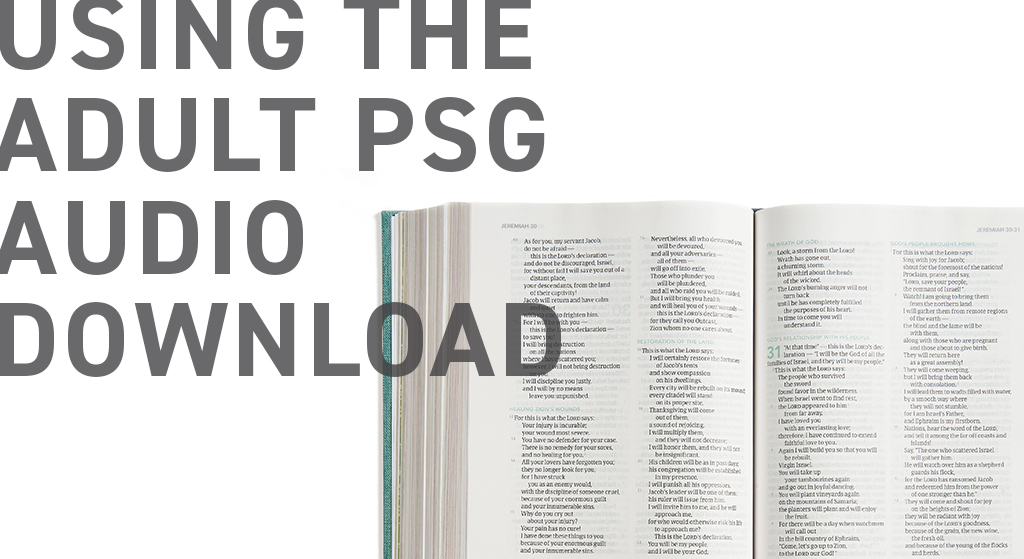The way we listen to music and audio recordings has come a long way. Some of us may remember albums where the artwork on the jacket cover may be just as much fun as the recordings found inside the cover. In time we had 8-tracks, then cassettes, CDs, MP3 players, and now streaming services. Imagine the challenges we would face today listening to an audio book that was delivered on a vinyl set of albums!
As the practices and technology changed so too did the way Lifeway provides audio files. At one time, we produced LP albums. Then came cassettes which were replaced with CDs. We have moved with the times and technology. That is one reason we began providing the audio version of the adult Personal Study Guide as a downloadable MP3 file.
Moving to an MP3 download made the files more accessible. This change also gave flexibility since more people have access to MP3 files than to CDs. A person would only need to download the ZIP file once and then could add it or play it on whatever device they choose. Moving to the MP3 download model also meant the audio file would have all the content found in the printed Personal Study Guide which was not the case when we produced the audio CDs.
Just like the transition from cassette to CD was a challenge for some, we knew going in that some would face challenges like not having internet access or a smart device, or the ability or knowledge to play an MP3 file. As people voiced the challenges faced, some also helped us see some of the solutions.
Here are some of the ideas shared with us about needing internet access.
We only need to download the file once so we can use the Wi-Fi in a local library and restaurant for that purpose. One person noted that they recruited teenagers to download the file and then to place it on an MP3 player. The teenager was even asked to deliver the MP3 player to the person who needed the audio, making a cross-generation connection which benefited both people.
What about people who do not have a smart device?
One option noted was providing MP3 players to the people needing the audio, loading the audio files each quarter. In this situation, the church was providing CD players to those who needed one so this would simply be a continuation of that practice. It was noted that some MP3 players can be purchased for less than many newer CD players.
One inexpensive option is old cell phones that are no longer in service as long as the phone has a music player included. The former user got a new phone with no credit was offered for the trade in, so the old phone became one more thing to store in a box or drawer. Most older cell phones have a 3.5 mm plug that could be used to connect the phone to a variety of speakers and to some cars.
Another option was to download the audio ZIP file to a computer with the capability of generating CDs that could be played on CD players. Since the recordings are longer in the new set, one will need four CDs per quarter for this approach.
What solutions have you found that help people in your classes or groups use the audio download? Please post in the comments.
